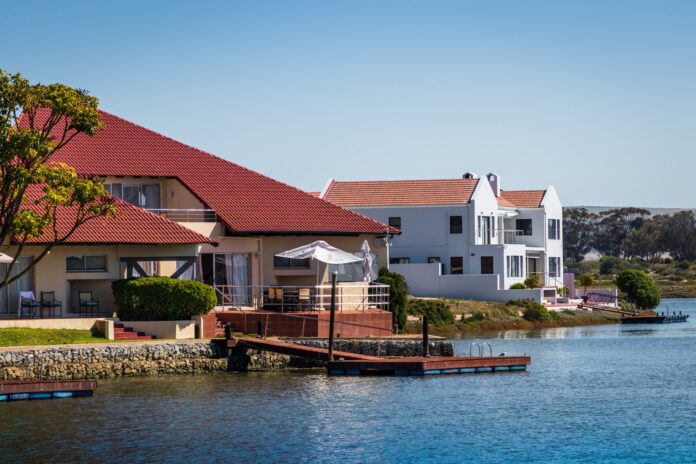For people looking to escape reality during the summer, vacation rentals are a hot commodity. They can often be more cost-effective than staying at a hotel. If you’re looking for a new property investment, then this may be one to consider. Before diving in, here are some of the pros and cons of managing a vacation rental.
The Benefits of Owning a Vacation Rental
Investing in a rental home can have financial perks. Here are some of the other pros to think about.
1. You Will Earn Extra Income
One of the main benefits of having a summer home is the additional income. The amount of income you receive will depend on the type of neighborhood and home you have. Take a look at local listing sites, like Airbnb, to better understand how much you should charge for rent.
Vacation rentals are becoming more popular because they allow for small, more private social events for friends and families. Also, due to the pandemic, hotel prices have increased, making rental homes a more affordable option.
2. The Home Can Increase in Value
With more people working from home, a vacation property is a desirable option. So, when you go to sell the house, you can make a higher profit.
Before making a purchase, research current and past market trends. This can help you find a residence with a higher return on investment. Also, having a property in a high-demand area, such as tourist areas in Maryland or New Jersey, can increase the value of your home.
3. You Can Deduct Business-Related Expenses
Since you’re running a business, you’re also able to receive certain tax deductions. Some expenses you can claim include housekeeping and restocking. Here are some other costs you can withdraw on your tax return:
- Mortgage interest
- Property tax
- Operating expenses
- Deprecation
- Repairs
Make sure to hold on to receipts in case you ever need to show proof of expenses. Also, consider investing in a business credit card to keep payments all in one place.
4. You Will Have a Vacation Home to Use Whenever You Want
Owning your property gives you a space to get away for a while. To keep profits high, consider going on the off-season. Your residence is also the perfect destination for your family’s summer vacation. This way, you can stay in a place you feel comfortable while saving money.
If you have extended friends or family looking for a place to sleep over the summer, your rental space could be a good option. Also, if you work remotely, your vacation rental can provide a change of scenery. Then, when you’re ready to retire, you already have a place to be.
5. Easy Marketing Opportunities
With so many websites available to list your property, such as Airbnb and VRBO, you can easily attract renters. You can also use social media to gain a wider audience. Here are some tips for advertising your property on social media:
- Post more than just the residence
- Promote an experience
- Encourage guests to tag you
- Ask renters to post reviews
- Use location tagging and hashtags
Then, you can choose which guests would be a good fit. You can also decide when you want to rent out your property and advertise during peak times.
The Drawbacks of Owning a Vacation Rental
While having a summer rental can have multiple advantages, here are some of the things to consider before making your purchase.
1. There May Be Unexpected Expenses
Keep in mind appliances can break or stop working at any time. As a landlord, you’re responsible for repair costs. This is why you want to prepare for unexpected expenses, such as bursting pipes. Consider setting aside 1% of your home’s purchase price for emergency funds.
2. The Down Payment Could Be Higher
Vacation rentals may have a higher down payment, which can require a careful savings strategy for business owners. You’ll most likely pay between 10% and 20% down. Keep in mind your credit score requirements may be higher as well, so all your financial ducks should be in a row.
3. You Will Pay More Taxes and Fees
You will need to pay federal taxes on your additional income. You also will have to pay state, local, and property taxes. Some local laws may require you to get a business license, which may come with additional expenses. Also, keep in mind that you may need to pay a booking fee to market your home online.
If the expenses are too much, consider participating in a 103 exchange to sell your property strategically. This type of swap allows you to defer capital gains taxes and reinvest in a more suitable residence. It’s a wise strategy if your intention is to reinvest in a more suitable location or simply keep a vacation property for personal use instead.
4. It Can Be Time-Consuming to Keep Up with Maintenance
Keeping up with everyday maintenance and repair requests takes up your time. Also, you will need to prepare for each guest’s arrival. This may include cleaning the sheets or restocking the fridge.
If your vacation home is farther from your primary residence, also factor in the time it takes to travel. Another time-consuming task to keep in mind is marketing. You’ll need to create an online listing to attract tenants.
Should You Manage a Vacation Rental?
When owning a summer rental, there are multiple perks, such as income and convenience. However, you may want to consider unexpected expenses and time commitments. Before making a purchase, weigh these pros and cons carefully.
Find a Home-Based Business to Start-Up >>> Hundreds of Business Listings.

















































